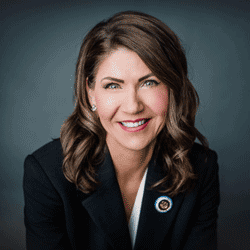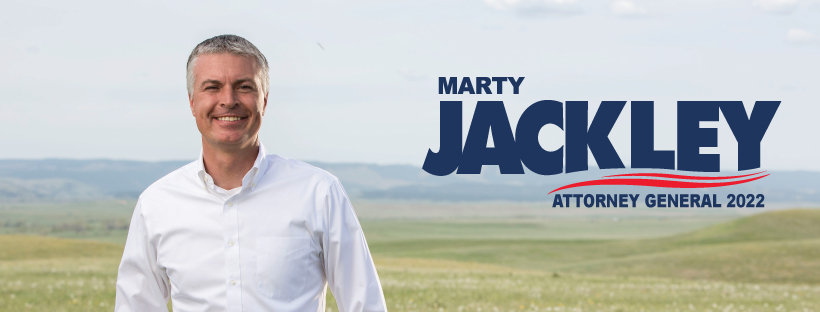I’ve noticed recently that some rocks have been lobbed from writers on the left towards Governor Noem regarding the belief that the administration should be doing more for the disability community during this time of COVID, as if the Governor somehow doesn’t care or is non-responsive to the needs of those with disabilities.
At least from my own experience, I don’t believe this could be farther from the truth. And you don’t have to go back very far to prove it so. Back just before this crisis that we collectively call COVID, when families of those with Autism and other disabilities were seeking relief for expensive treatments not covered by insurance, it was Governor Kristi Noem who moved the needle.
Her hand wasn’t forced. She was not compelled by action or inaction of the legislature. But she listened, empathized and made things happen in her administration to change the status quo. And not to take anything away from her predecessors in the Governor’s office, but Kristi made things happen that had not happened before.
In 2017 after 2 years of battling out measures in the legislature against insurance carriers, Governor Daugaard signed HB1195, which was an enhancement of Autism Insurance reform previously passed to help cover payment for Applied Behavior Analysis (ABA) treatment. It was a continuation of a previous effort.. but in a way it was a baby-step, because these things never cover everyone and all insurance plans because of the patchy nature of how plans are regulated (state v federal), etc.
2018 was largely quiet on the issue.. but in 2019 during Governor Kristi Noem’s first legislative term, a new bill was back to extend that coverage to additional insurance plans under House Bill 1236. That years’ fight was to attempt to extend the protections to all insurance plans. Naturally, the insurance carriers trotted out their same arguments against it, and the bill met the same fate as when the battle was first started several years back.
But, unbeknownst to a lot of people, the fight wasn’t over. If anything, it had only begun, and it moved from the legislative venue to the battleground of Governor Noem’s administration. And things happened. Big things that Governor Noem’s administration had initiated on their own.
 Shortly out of that legislative disappointment Governor Noem’s administration dropped a bomb into the discussion, and blew up the coverage question when the administration announced in April of 2019 that they had filed a proposal that has been filed which would potentially add coverage for applied behavior analysis (or ABA therapy) for children diagnosed with Autism Spectrum Disorder within certain limits for individual and small group ACA compliant health.
Shortly out of that legislative disappointment Governor Noem’s administration dropped a bomb into the discussion, and blew up the coverage question when the administration announced in April of 2019 that they had filed a proposal that has been filed which would potentially add coverage for applied behavior analysis (or ABA therapy) for children diagnosed with Autism Spectrum Disorder within certain limits for individual and small group ACA compliant health.
It may have been such a technical change to come off as wonky or gobbledygook to many – but to advocates who had been fighting to add coverage for ABA treatment it was literally a holy grail, as it added the coverage as a mandatory benefit in the individual and small group market. And as of July 2019, it was made official.
The Governor made a promise to help families of children with Autism – and this was a promise kept. And that would have simply a tremendous thing on its own. But she didn’t just end it there. In October of 2019, as Governor Noem announced…
Governor Kristi Noem, in conjunction with Avera Health Plans and Sanford Health Plan, is pleased to announce health insurance coverage options that include Applied Behavioral Analysis (ABA) therapy in the South Dakota insurance market for 2020.
“As governor and as a mom, I understand how important it is to get kids the kind of care they need,” said Noem. “After talking with parents of kids with autism and assessing the coverage options available, we recognized the need for an alternative option. I’m thrilled to announce Avera and Sanford have found a way to provide added coverage options for kids and families with autism.
Not only did Governor Noem’s administration update the Essential Health Benefits benchmark plan, the Governor took the lead to work with Avera and Sanford health plans to offer at least one option for plans to cover ABA therapy to help fill the gap in the interim.
These solutions came about because Governor Noem saw the needs from families, recognized that solutions were needed, and she acted in ways that the administration could unilaterally do so on their own, as well as acting in collaboration with insurance industry and health care partners.
And really, this is just one example, as Governor Noem continues to advocate for children as well as the families of those with disabilities, whether they are those affected by autism as my own family is, or advocating for those with Downs Syndrome as she has been active with this session.
Are advocates always going to get everything we want right away? As much as I wish it were so, I know we’re not, as we’re competing against others who seek funds, and sometimes competing interests such as the insurance industry.
It’s a give and take. That’s why we all go to the legislature, often register to lobby, and try to make the best case we can. We cheer our victories, and lament our defeats, and pick ourselves up to try, try again. But make no mistake – In the victories that I’ve watched over the past 2 years – these victories have been because Governor Kristi Noem has been interested, and actively stepped in and made solutions happen.
It has been Governor Noem whose heart has always been open for advocates listened, advocated and moved the ball down the field for those with Autism and other disabilities. Kristi Noem made it happen for families.
And I could not be happier that she is in the Governor’s office continuing to advocate and solve problems for families of those with disabilities.



 Shortly out of that legislative disappointment Governor Noem’s administration dropped a bomb into the discussion, and blew up the coverage question when the administration announced in April of 2019 that
Shortly out of that legislative disappointment Governor Noem’s administration dropped a bomb into the discussion, and blew up the coverage question when the administration announced in April of 2019 that 
